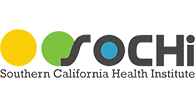Discover effective ways to boost academic success with strategies for better focus, time management, and study techniques. Academic success often feels like a complex puzzle, but it doesn’t have to be. Whether you’re a high school student, a college undergrad, or a lifelong learner, adopting the right strategies can make studying more productive, efficient, and enjoyable.
Why Improving Academic Skills Matters
The ability to excel academically is about getting good grades and mastering skills like critical thinking, time management, and effective communication. Success in these areas boosts confidence, creates future opportunities, and opens doors to personal development. Here’s how you can get started.
Master Your Studies with Strategies to Boost Academic Success
Here are ten science-backed strategies to help you unlock your academic potential and succeed in your educational goals.
1. Set SMART Goals
Start by setting SMART goals—Specific, Measurable, Achievable, Relevant, and Time-bound. Instead of saying, “I want to do well in history,” try, “I will study for 2 hours daily and aim for 90% on my next history test.”
Why it Works
SMART goals give you a clear roadmap, making it easier to stay focused and track your progress. Studies suggest that individuals who set clear objectives achieve more because they know exactly what they are striving for.
2. Create a Study Schedule
Consistency is key when it comes to academic success. Creating a study schedule helps you allocate time to specific subjects and reduces last-minute cramming before exams.
Tips for Successful Scheduling
- Use tools like Google Calendar or a physical planner.
- Set aside short breaks to avoid burnout.
- Study the most challenging subjects when your energy levels are high.
3. Practice Active Learning
Active learning means engaging with the material instead of passively reading or listening. This could include answering questions, summarizing chapters, or teaching the material to someone else.
Techniques to Try
- Use flashcards to test your memory.
- Turn your notes into questions you can answer later.
- Engage in group study sessions to discuss and debate the material.
4. Seek Feedback Regularly
Constructive feedback from teachers or professors provides valuable insights into your strengths and areas for improvement. Make it a habit to request feedback for essays, projects, or tests.
How to Approach Feedback
- Be open to criticism; remember, it’s an opportunity to learn.
- Ask specific questions like, “How can I improve my argument in this paper?”
- Take notes and implement the suggestions in future assignments.
5. Leverage Active Recall
This strategy involves retrieving information directly from memory, strengthening your ability to remember it later. Instead of rereading notes, close your notebook and try to recall key points.
Tools for Recall
- Use apps like Anki or Quizlet for spaced repetition.
- Turn concepts into questions and test yourself regularly.
- Practice past exam papers to prepare effectively.
6. Master Time Management
Effective time management helps you balance academics with extracurriculars and personal time. Procrastination, on the other hand, is the enemy of success.
Techniques to Stay Productive
- Apply the Pomodoro Technique (study for 25 minutes, then take a 5-minute break).
- Prioritize tasks using the Eisenhower Matrix, which helps you focus on what is urgent and important first.
- Avoid multitasking; focus on one thing at a time for maximum efficiency.
7. Develop Critical Thinking Skills
Critical thinking encourages students to analyze, interpret, and question information. This skill is particularly useful for writing essays, solving problems, and participating in discussions.
Ways to Build Critical Thinking
- Question assumptions in the material you’re studying.
- When writing essays, brainstorm multiple perspectives before forming your conclusion.
- Discuss topics with peers to get exposure to diverse viewpoints.
8. Utilize Campus Resources
Most schools and universities offer various academic resources at your disposal, like tutoring centers, writing labs, or career counseling. Don’t hesitate to take advantage of them.
Resources to Look For
- Study groups and peer learning programs.
- Online support tools provided by your institution.
- Office hours for one-on-one time with your instructors.
9. Stay Healthy, Both Mentally and Physically
Your brain works best when you’re taking care of your body. Regular exercise, a nutritious diet, and enough sleep lay the groundwork for academic success.
Mental Health Tips
- Manage stress using techniques like mindfulness or meditation.
- Limit distractions like social media when studying. (Apps like Forest can help you stay focused.)
- Establish a sleep routine and aim for 7-8 hours of rest each night.
Physical Endurance
- Incorporate at least 30 minutes of exercise daily.
- Stay hydrated—your brain needs water to function properly.
- Avoid junk food and caffeine overload; opt for healthy snacks like nuts or fruits instead.
10. Cultivate a Growth Mindset
A growth mindset, as opposed to a fixed mindset, allows you to see challenges as opportunities to grow. Believe in your ability to change and improve through effort and perseverance.
How to Foster Growth
- Replace thoughts like “I’ll never be good at math” with “I’m not good at math yet, but I can get better.”
- Celebrate small achievements to build momentum.
- Learn from mistakes instead of dwelling on them.
How To Choose a Career Path
Choosing a career path involves understanding your passions, strengths, and long-term goals while considering practical factors like job market trends and growth potential. Start by identifying what excites and motivates you, then match those interests with industries or roles that align with your skills and values.
Researching career options, gaining relevant experience through internships or volunteering, and seeking guidance from mentors can provide clarity and confidence in your decision. Remember, a career is a journey, not a single destination, so be open to growth and opportunities to refine your path as you evolve.
How Sochi Can Help You in Continuing Education
Continuing your education with Southern California Health Institute (SOCHi) can be the key to unlocking a successful and fulfilling career in allied health. With nearly three decades of expertise, SOCHi ensures that adult learners and career changers receive personalized, hands-on training in medical assisting, physical therapy aide, and fitness training.
Our programs are designed to equip you with practical skills and build your confidence through real-world experience, expert guidance, and a supportive community. As a nationally accredited institution, SOCHi’s commitment to excellence will give you the qualifications and ethical grounding needed to excel in a competitive healthcare industry. Take the next step toward your dream career with an education that prepares you to thrive in today’s workforce.
Final Thoughts
Academic success isn’t about being perfect; it’s about progress. By applying these 10 strategies—setting SMART goals, managing your time, leveraging campus resources—you’ll find yourself not just performing better, but also enjoying the learning process along the way.
If you’re feeling stuck or would like more tips on improving your academic skills, explore our latest academic success guide or join our community forum to connect with students like you!




